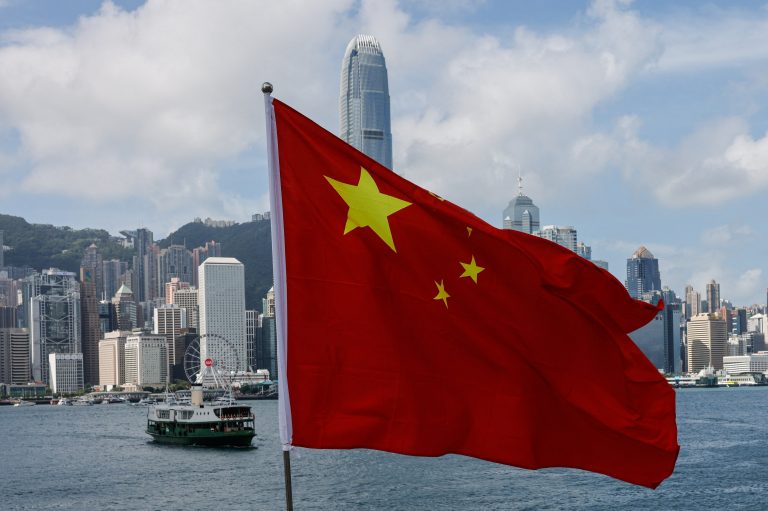
Donald Trump’s Inauguration Day 2025 Speech: A Golden Age or a Polarising Vision?
On 20 January 2025, Donald Trump delivered his second inaugural address upon reclaiming the presidency of the United States. The speech, rich in evocative language and ambitious promises, outlined a bold vision for a “Golden Age” of American resurgence. With references to national unity, sweeping policy changes, and a narrative of personal vindication, Trump’s address captured attention both domestically and globally. Yet, his words also sparked intense debate, with supporters hailing a transformative agenda and critics questioning its feasibility and tone.
A Vision for America’s Renewal
Trump began by framing his presidency as the dawn of a new era, declaring, “The Golden Age of America begins right now.” He promised to restore the nation’s standing as a global leader and a beacon of prosperity. A recurring theme was his commitment to “put America first,” a hallmark of his first term in office, as he outlined priorities such as reclaiming sovereignty, restoring justice, and fostering national pride.
In an impassioned segment, Trump addressed the erosion of public trust in government institutions, a crisis he attributed to a “radical and corrupt establishment.” He pledged to end what he described as the “vicious, violent, and unfair weaponisation of government” and return power to the American people. His call for honesty about national challenges struck a chord with supporters but also drew scepticism for its overtly combative tone.
Sweeping Policy Proposals
The speech was notable for its extensive policy agenda, unveiled through a series of planned executive orders. Among the most significant were:
1. Immigration Reform:
Trump announced a national emergency at the southern border, pledging to halt illegal entry and deport “millions of criminal aliens.” His revival of policies such as “Remain in Mexico” and plans to deploy military forces to the border marked a hard-line approach aimed at stemming illegal immigration. Critics have questioned the logistics and humanitarian impact of such measures, while supporters view them as decisive steps to secure the nation.
2. Energy Policy:
Declaring a national energy emergency, Trump vowed to revitalise American energy production by expanding oil and gas drilling and dismantling the Green New Deal. He promised to “drill, baby, drill” to lower energy costs and bolster the economy. Environmental groups, however, criticised this approach as a step backwards in combating climate change.
3. Economic Nationalism:
Trump proposed an “External Revenue Service” to collect tariffs on foreign goods, a move designed to protect American workers and generate revenue. While the idea aligns with his economic populism, analysts have raised concerns about potential trade retaliation and its effect on global markets.
4. Education and Social Policy:
In a controversial declaration, Trump stated that the government would adopt a “two-gender” policy and eliminate what he described as “radical political theories” from public education. While some praised this as a return to traditional values, others decried it as discriminatory and regressive.
5. Military and National Security:
Trump vowed to rebuild the military and reinstate service members dismissed over vaccine mandates, granting them full back pay. He described his vision of a military focused on defending America’s enemies rather than engaging in social experiments. His rhetoric sought to reassure conservatives but faced pushback from advocates of diversity in the armed forces.
A Personal Narrative of Resilience
A poignant moment in Trump’s speech was his revelation of an assassination attempt months prior, in which “an assassin’s bullet ripped through my ear.” He attributed his survival to divine intervention, framing it as a sign of his mission to lead the nation. This anecdote resonated with supporters, adding a layer of personal determination and faith to his public persona. Sceptics, however, have called for further clarification on the incident.
Unity Amid Division?
On Martin Luther King Jr. Day, Trump struck a tone of inclusivity, expressing gratitude to African American and Hispanic voters for their “tremendous outpouring of love and trust.” He invoked King’s dream of equality, pledging to make it a reality. Yet, his broader rhetoric often leaned towards division, particularly in his critique of the “radical establishment” and foreign adversaries.
Critics argue that Trump’s speech offered little to bridge the deep political and social divides that have characterised recent years. While his supporters view him as a unifier, opponents contend that his policies and rhetoric risk exacerbating polarisation.
International Implications
Trump’s address included a provocative statement about renaming the Gulf of Mexico as the “Gulf of America,” a move he justified as reclaiming national pride. He also announced plans to “take back” the Panama Canal, citing broken promises and unfair treatment of American interests. These declarations, while symbolically powerful, raised concerns about potential diplomatic fallout and international stability.
A Call to Ambition
Ending on an optimistic note, Trump described Americans as “explorers, builders, and pioneers,” pledging to lead the nation into a new era of growth and exploration. He rekindled his 2017 proposal to send astronauts to Mars, calling it “our manifest destiny into the stars.” This aspirational rhetoric appealed to a sense of national pride but left questions about funding and technological readiness.
Reception and Critique
Reactions to Trump’s inaugural speech have been polarised. Supporters have lauded his decisive tone, ambitious goals, and focus on American sovereignty. Conservative commentators see his agenda as a necessary corrective to perceived liberal overreach.
Conversely, critics have labelled the speech as divisive and overly combative, arguing that it prioritises ideology over practicality. Concerns have been raised about the feasibility of Trump’s proposals, particularly in light of fiscal constraints and international relations.
Conclusion: A Nation at a Crossroads
Donald Trump’s 2025 inaugural address presented a vision of renewal, strength, and ambition, marked by sweeping promises and bold rhetoric. It reflected his belief in an America poised to reclaim its greatness but also underscored the challenges of uniting a deeply divided nation. Whether his vision leads to the “Golden Age” he promised or intensifies existing divisions will depend on the execution of his policies and the response of the American people.
As the world watches, one thing is certain: Donald Trump’s presidency will leave an indelible mark on the trajectory of the United States. Whether it is remembered as a transformative era or a contentious chapter in history will be determined in the years to come.
Aric Jabari is the Editorial Director of the Sixteenth Council.



